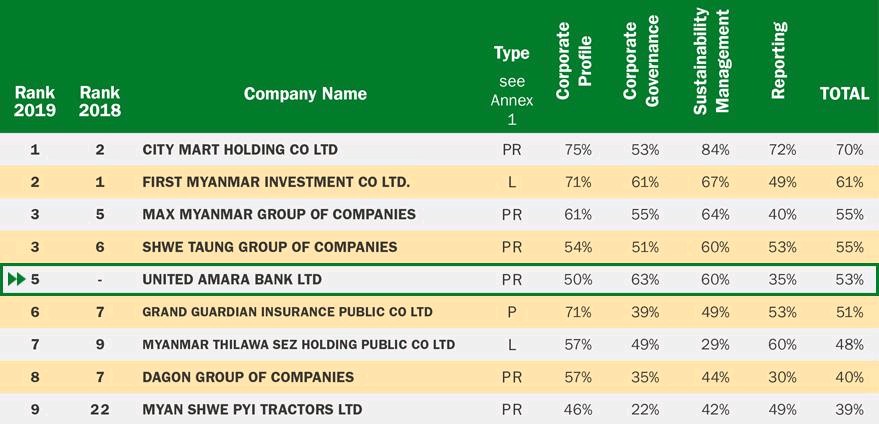Corporate governance requires that business enterprises should take lead in solving environmental issues. It is their responsibility to check the consequences of their actions and also to protect environment and its resources. “It is important for Myanmar companies to improve their corporate governance practices whether they are seeking to expand their business, foster stronger ties with international partners, or develop a smooth succession plan” said U Maung Maung Win, chair of Securities and Exchange Commission of Myanmar, earlier this year. A sincere commitment by the top management of the business to cultivate, maintain and develop work culture for environmental protection and pollution prevention is needed.
Shwe Taung Group with a business portfolio covering six core sectors – building materials, distribution, engineering and construction, infrastructure investment, lifestyle, and real estate has reportedly made an impactful and sustainable contribution towards preserving the environment and promoting people’s role as active and responsible citizens. Activities such as developing clear-cut policies and programmes for purchasing good quality raw material, using latest technology, using scientific techniques of disposal and waste management could be done. Further, attempts could be made to develop the skills of the employees for the purpose of pollution control.
Banking sector
Efficient corporate governance is needed in banking sector as well because it is a major contributing factor for the financial stability of Myanmar banking industry. It involves regulatory and market mechanisms; the roles and relationships between a company’s management, its board, its shareholders, and other stakeholders; and the goals for which the corporation is governed.
In 2003 in Myanmar, a banking crisis had occurred due to liquidity shortage, the main reason of which was ineffective corporate governance. Studies reveal that if companies boost their corporate governance practices they will become sustainable in Myanmar and regional markets. Practices such as risk management and anti-corruption controls are areas where Myanmar companies need to address in order to access finance from international sources as well as from domestic banks, observers say. This is increasingly relevant for Myanmar banks as greater controls are put on non-performing loans by the local banking sector.

After several years of rapid expansion and double-digit credit growth, Myanmar’s banking sector underwent several necessary reforms in 2017 and 2018. The Myanmar Corporate Governance Scorecard 2018 published by the International Finance Corporation (IFC), the Securities and Exchange Commission of Myanmar, the Yangon Stock Exchange and the Directorate of Company Investment and Company Administration (DICA) is the first report of its kind in the country that assesses the performance of 24 companies in the country.
IFC says that banks could require their client to have clear and transparent financial reporting and adopt the rules on approval and disclosure of related party transactions, in large part to reduce their own credit risk. This could be achieved by good corporate governance which is an important consideration for local banks as well as foreign banks operating in Myanmar to provide access to finance to Myanmar companies.
To experience the financial sector as transparent and inclusive a program titled ‘Banking and Financial System Development’ was started in 2017 whose objective was that small and medium-sized enterprises have comprehensive access to banking services. Also the aim was to achieve greater transparency while ensuring that demand-based financial services are available to SMEs. The program after two years achieved desired results. Good corporate governance not only ensures corporate success and economic growth, it also lowers the capital cost.










